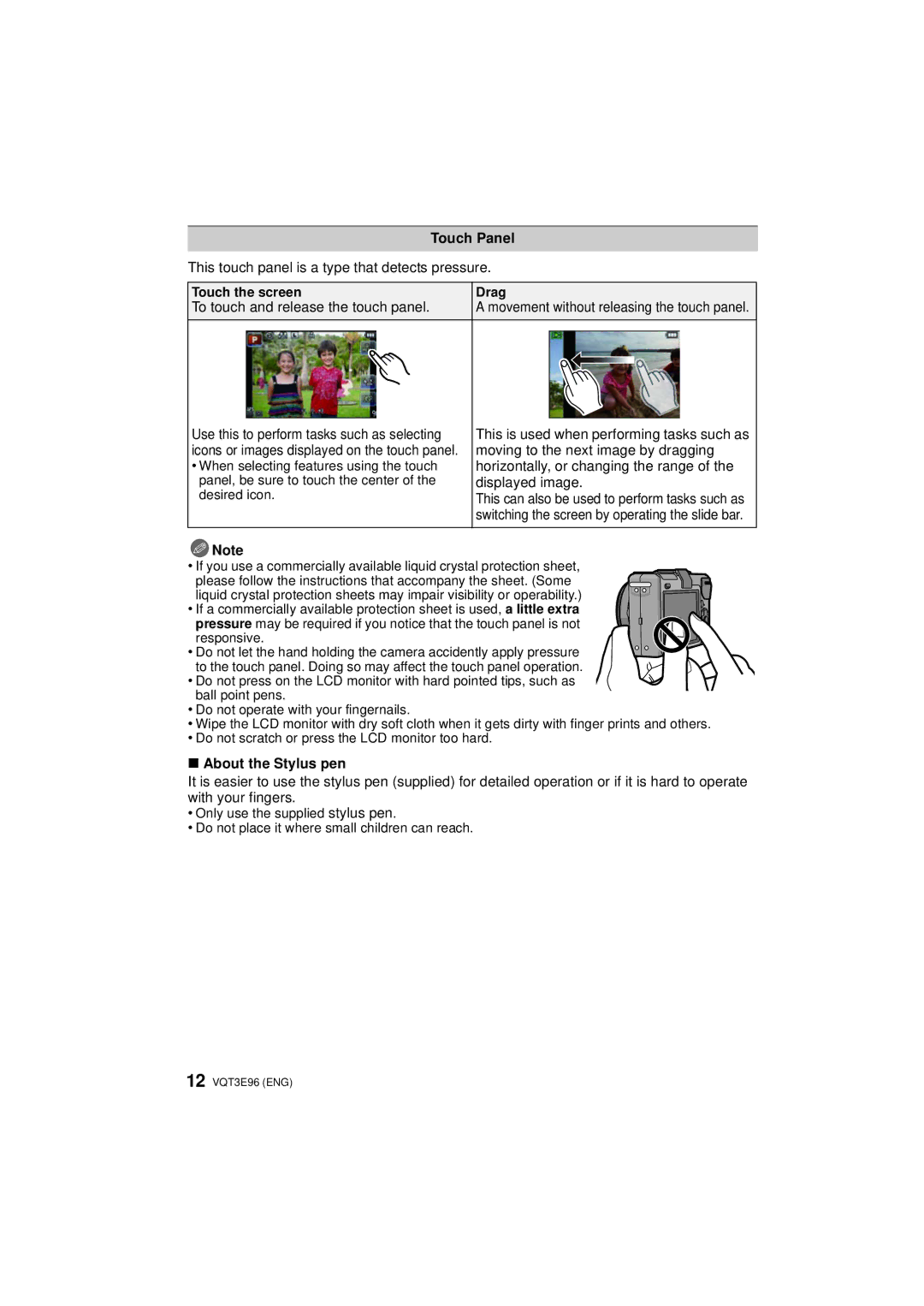
| Touch Panel |
This touch panel is a type that detects pressure. | |
|
|
Touch the screen | Drag |
To touch and release the touch panel. | A movement without releasing the touch panel. |
Use this to perform tasks such as selecting | This is used when performing tasks such as |
icons or images displayed on the touch panel. | moving to the next image by dragging |
• When selecting features using the touch | horizontally, or changing the range of the |
panel, be sure to touch the center of the | displayed image. |
desired icon. | This can also be used to perform tasks such as |
| switching the screen by operating the slide bar. |
![]() Note
Note
•If you use a commercially available liquid crystal protection sheet,
please follow the instructions that accompany the sheet. (Some liquid crystal protection sheets may impair visibility or operability.)
• If a commercially available protection sheet is used, a little extra pressure may be required if you notice that the touch panel is not responsive.
• Do not let the hand holding the camera accidently apply pressure to the touch panel. Doing so may affect the touch panel operation.
• Do not press on the LCD monitor with hard pointed tips, such as ball point pens.
•Do not operate with your fingernails.
•Wipe the LCD monitor with dry soft cloth when it gets dirty with finger prints and others.
•Do not scratch or press the LCD monitor too hard.
∫About the Stylus pen
It is easier to use the stylus pen (supplied) for detailed operation or if it is hard to operate with your fingers.
•Only use the supplied stylus pen.
•Do not place it where small children can reach.
12 VQT3E96 (ENG)
